Thursday, 30 December 2010
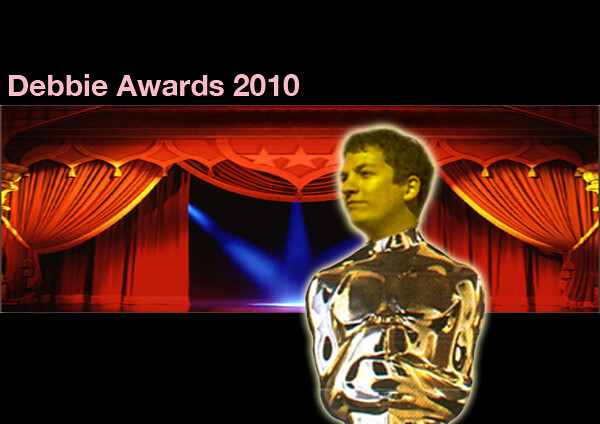
Happy holidays once again! I hope you are all enjoying your time off, preferably by a crackling wood fire with loved ones and a mug of hot chocolate. But we are just a few days now from the biggest party night of the year as we ring in a new year, and hopefully a brighter year for all of us.
And so, before I head off to Paris, I will compile my massive annual review of the "best of" awards from the past year which have come to be known, lovably, as the Debbies. Each of these will then be divided into five categories: Cinema & TV, Music & Theatre, Videogames & Technology, Sports & Personal.
It's a hefty undertaking, but I will follow it up with a list of the hottest tips for 2011 in the coming days after new year that you should look out for, as well as a retrospective look at my predictions from last year.
So without further ado, here are the:
2010 Debbie Awards
Cinema & TV
1. The Debbie for TV Show of the Year
Winner: Dexter
Runner Up: The Office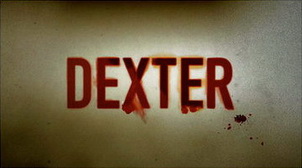
At a time when real quality on tv is lacking, Dexter has defied the critics by proving to be an enduring and unmissable part of the weekly lineup. Season 5 was always going to struggle in the wake of the previous season, which hit a whole new peak for the series, but the dry humor and continually inventive drama ensures that the show remains one of the very best around.
Meanwhile, The Office takes the runners up prize. Indeed it seems hard to believe that the American spin off was once considered little more than a cheap rip off the the British original, but now in the seventh season and the show continues to achieve a remarkable level of consistency.
2. The Debbie for Film of the Year
Winner: The Social Network
Runner Up: Inception
It is not too surprising that The Social Network takes this award, adding it to the best picture awards it has already received from the critics associations of Los Angeles and New York (mere trinkets compared to this one of course). A tight production featuring a director on song, a fiery script and a few breakout performances (Andrew Garfield in particular), the Social Network easily deserves this prize.
Christopher Nolan's latest, probably greatest film Inception comes in second, featuring a stunning ensemble cast and breathtaking directing. That being said, it only just edges out Black Swan and 127 Hours, and perhaps can count itself lucky that I have yet to see the King's Speech, which otherwise would be a strong contender for the top two.
Music & Theatre
3. The Debbie for Theatrical Production of the Year
Winner: After the Dance
Runners Up: Red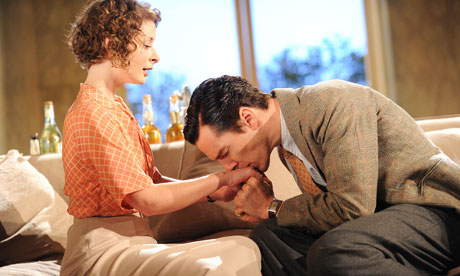
What's this, a non Donmar production winning the big prize? After the Dance at the National theatre was a top production, featuring Sherlock's excellent Benedict Cumberbatch reminding us that he's more than just a television actor.
Alfred Molina and Eddie Redmayne impress in arty production Red from the Donmar Warehouse.
4. The Debbie for Album of the Year
Winner: The Suburbs - Arcade Fire
Runner Up: Plastic Beach - Gorillaz
Musically and thematically, The Suburbs was unparalleled this year. Excellent as a whole and full of top songs like Sprawl II and Modern Man, Arcade Fire enjoy perhaps their finest moment.
Gorillaz broke with their usual style when recording new album Plastic Beach producing something fresh and always inventive featuring an impressive lineup of big name musicians. Great songs like Melancholy Hill make this an album not to miss.
5. The Debbie for Debut Album of the Year
Winner: Broken Bells - Broken Bells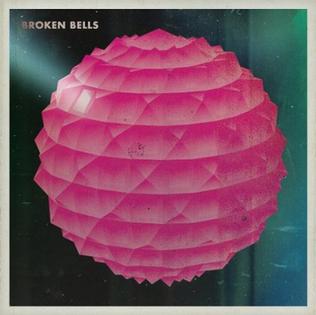
In a year which was not particularly great for new artists the obvious standout for a debut album as a whole would be Broken Bells with their eponymous album. A two-man band consisting of James Mercer from the Shins and multi-instrumental all around legend Danger Mouse, not every song on this album is a classic, but when it works it's pretty damn good as with hit single The High Road and Brian Eno-esque track Your Head is On Fire while the rest is interesting enough to make their partnership one to watch going forward.
6. The Debbie for Song of the Year
Winner: On Melancholy Hill - Gorillaz
Runners Up: Sprawl II - Arcade Fire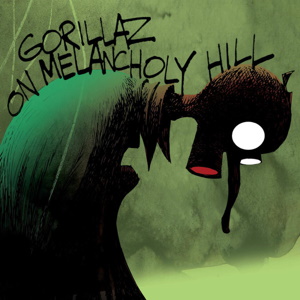
There were two obvious contenders for this most coveted of crowns this year. The eventual winner On Melancholy Hill from Gorillaz is nothing short of a magical pop song, a danceable delight.
The close runner up is the 1980s Blondie tinged power drive of a song from the Suburbs, Sprawl II , a crucial part of the album and a great song in its own right.
Videogames & Technology
7. The Debbie for Greatest Technological Innovation of the Year
Winner: iPad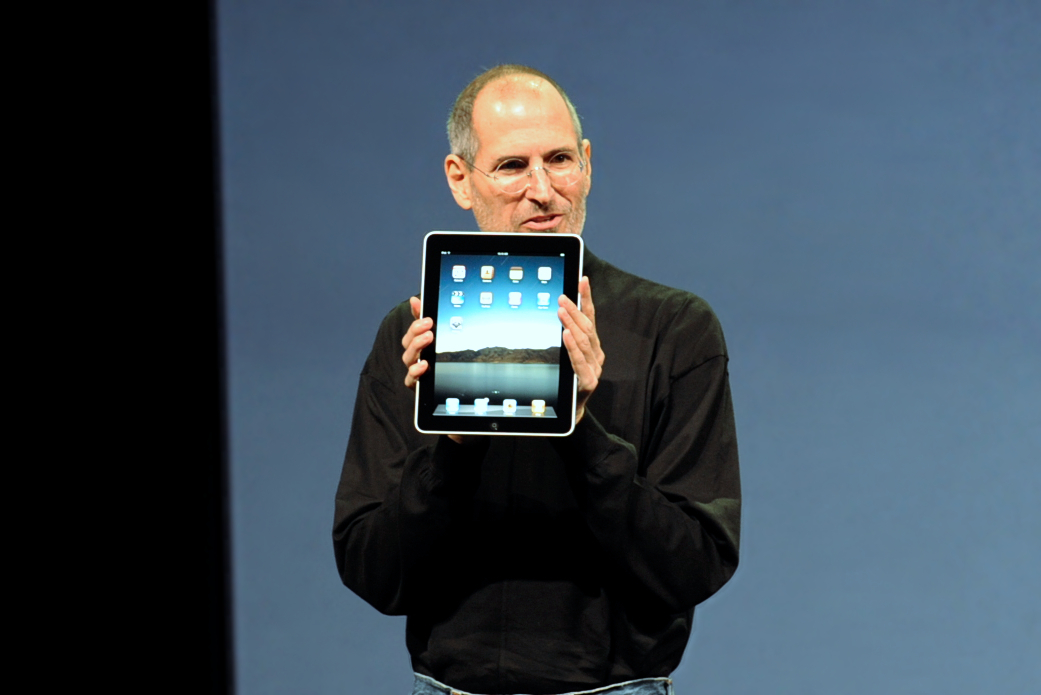
You would be forgiven for thinking that the iPad is a device from some Star Trek tv show, but with a beautiful and colorful screen, and near endless functionality, the iPad defines the moment when the tablet computer became mainstream. Also, iFooty is available in a gloriously optimised iPad flavor, you can find it on the top sellers list of the app store.
8. The Debbie for Lamest Technological Innovation of the Year
Winner: 3D media
Ok, it worked pretty well for Avatar, but now all of a sudden we need to watch everything in 3D, from our films to our tv, videogames and even the footy. It's getting pretty silly for a product which costs a lot and frankly doesn't add a whole lot 99% of the time. You're not fooling anyone, this is just a way to compensate for declining sales in HD TVs, now we need to go buy something new!
9. The Debbie for Videogame of the Year
Winner: Mass Effect 2
Runner up: Red Dead: Redemption
It was a tough call between two or three really excellent games, but in the end Mass Effect 2 takes the prize. A true step forward for games in terms of narrative and cinematic flair, and a major improvement for the series in terms of gameplay, Mass Effect 2 was an absolutely breathtaking videogame experience which sets the scene nicely for the sequel due out at the end of next year (but probably not really until 2012).
Meanwhile, Read Dead: Redemption just comes behind in second place, despite its amazing technical achievements.
Sports
10. The Debbie for Footballer of the Year
Winner: Lionel Messi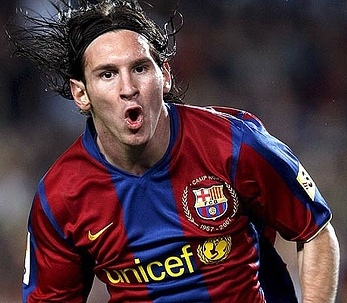
Lionel Messi, retains his trophy, being that he is frankly not in the same category as the rest of us mere mortals when it comes to footballing ability. For this reason I have decided that picking a runner up would bely the gulf in class between him and the rest.
11. The Debbie for Sports App of the Year
Winner: iFooty
Little surprise as the hot selling and critically acclaimed app that took the iPhone and iPad by storm continues to charm new users by the day as the "indie" football app of choice in the face of the increased competition from established corporations like Sky and Eurosport.
Social
12. The Debbie for Party of the Year
Winner: Nightmare on M Street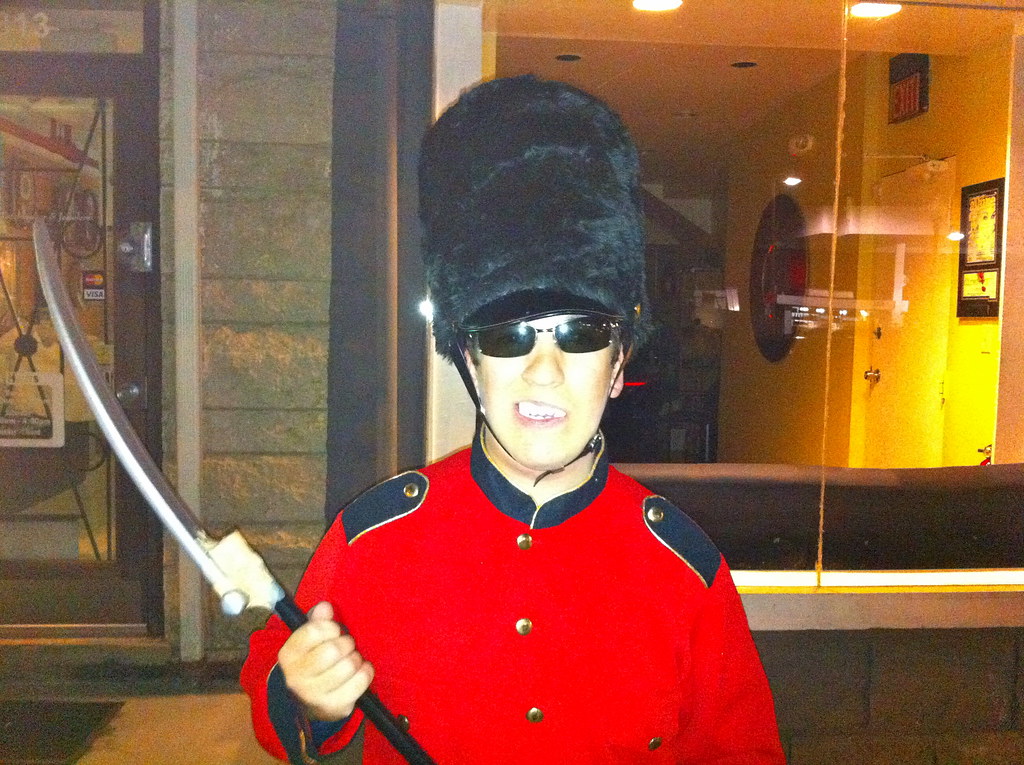
Say what you want about Washington DC, but they know how to throw a good Halloween party. This year's was particularly crazy being on the same day as the mega rally which had pretty much every young person in the region buzzed.
13. The Debbie for Restaurant of the Year
Winner: City Zen
Runners Up: O Ya
City Zen, the restaurant at the Mandarin hotel in DC, offers one of the best meals money can buy anywhere. Full wine tasting menus, exquisite dishes and even a choice of fancy butters for the bread make this meal a decadent joy from start to finish (at least until the bill comes).
But mention must still go out to O Ya of Boston, one of the best restaurants in the world, so good as to make reference to it as a "sushi place" seem almost ludicrous.
14. The Debbie for Douchebag of the Year
Winner: Ben Fitzgerald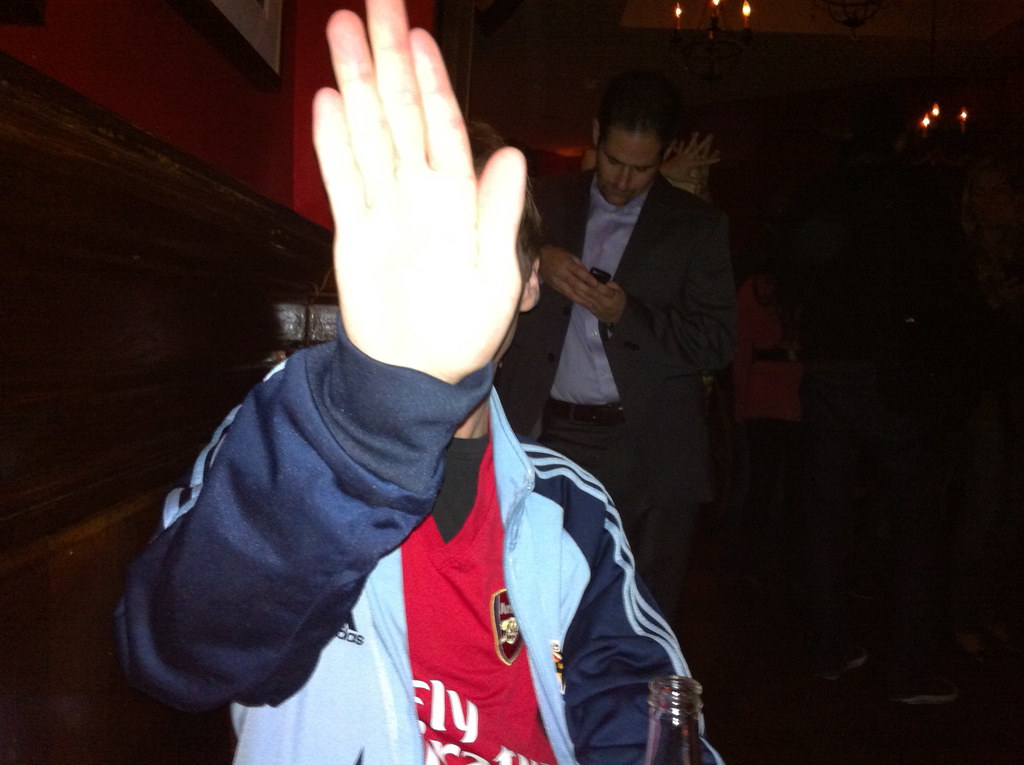
Perennial douche Ben takes the gold this time. Mazel tov! As a side note, last year's winner Digg.com has now pretty much imploded and turned into one of the great cautionary tales of the internet, apparently I was not the only one who found them laughable.
15. The Debbie for Nightclub of the Year
Winner: Strawberry Moons
Always guarantees a great night out, good drinks, good specials, good times.
16. The Debbie for Book of the Year
Winner: Freedom - Jonathan Franzen
Franzen returns, finally, and produces an unexpectedly beguiling piece of work.
17. The Debbie for Wine of the Year
Winner: Castello di Ama 2006
Runners Up: Brancaia Blue 2007
Castello di Ama has long been a favorite of mine, but truly this is the year when the superb 2006 bottle really took the limelight and became the hottest tipple in town.
Meanwhile 2007 is turning out to be an exceptional year for wines, and a perfect example of this is the vintage of Brancaia Blue, fast becoming the major name in local wine.
18. The Debbie for Champagne of the Year
Winner: Billecart-Salmon Elizabeth
This year, the new year will be rung with Elizabeth and with good cause, as anyone who has read our recent guide to celebrating with champagne.
19. The Debbie for Hotel of the Year
Winner: Suvretta House, St. Moritz
Runners Up: Le Meurice, Paris
The Suvretta House still remains the resort to beat, providing the same standards of luxury and glamour that has made it such a famous name around the Swiss alps.
Well there you have it, another great year, and here's to the next one being even better!
Monday, 27 December 2010
New Years eve is fast approaching, and with it comes all kinds of dilemmae on how best to celebrate, what suitably flamboyant outfit to wear and with whom you wish to share that all important kiss when the clock strikes midnight. Well, while I can help you with all those problems, today I'm going to tell you all about champagne.
Picking the perfect champagne can be an art form, one that is only honed by years of experience and good taste. Here I will take care of the hard part, and suggest some excellent celebrative champagnes with which you can ring in the happy new year.
5. Prévoteau-Perrier Adrienne
The finest bubbles in Épernay go into this bottle from little known champagne factory Prévoteau-Perrier, named for the owner's infatuation with actress Adrienne Lecouvreur. Easy drinking and festive, this champagne is perfect for connoisseurs and lightweights alike and at the same time highly economical compared to bottles of a similar quality.
Rating on the Debs-Seal-of-Champagne-Approval:
4. Veuve Clicquot La Grande Dame 1998
Veuve Clicquot often seem to be a champagne label that's more about name brand recognition than actual quality, and it shows on most of their basic bruts. However, the Grand Dame is immune from this affliction and turns out to be one of the tastiest champagnes you will find anywhere. A taste of chardonnay and complex hints of fruity overtones make this into a champagne that may be on the pricey side but certainly worth the expenditure.
Rating on the Debs-Seal-of-Champagne-Approval:
3. Billecart Salmon Blanc de Blanc
Billecart Salmon has long been the connoisseur's choice of champagne in terms of quality, and nothing says elegance and finesse like their excellent blanc de blanc. At 100% chardonnay, this vin is clean and subtle while ranking up their with any vintage, and should you be lucky enough to get your hands on a vintage blanc de blanc 1998... well then you have a very happy new years on your hands.
Rating on the Debs-Seal-of-Champagne-Approval:
2. Alfred Gratien Champagne Brut Millésimé 1998
Not as decadent, perhaps, as some of the other champagnes on this list, but you will rarely find a better tasting bottle than this. A distinct and heavenly aroma of honey and exquisite flavour makes this simply one of the finest champagnes on the market
Rating on the Debs-Seal-of-Champagne-Approval:
1. Billecart-Salmon Elizabeth Rose
It's already been mentioned that Billecart-Salmon is the tipple of choice for the champagne cognoscenti, but even by that measure nothing screams "opulence" like a bottle of the Elizabeth vintage. Rich, refined, and yet everything is simply right with this champagne, Elizabeth remains the finest of celebratory bubbly for all the biggest occasions and new years.
Rating on the Debs-Seal-of-Champagne-Approval:
Sunday, 26 December 2010
Genre Mash-up
Label Illegal Art
Producer Gregg Gillis
Release Date Out Now
The biggest name in the mash-up scene, Girl Talk, is back with a new album. All Day runs 12 tracks long and 373 samples mixed together into the kind of work that only Gillis can craft.
Fans of Girl Talk's manic style will not be disappointed. This is great party music, superbly mixed, and in many cases combines elements of known songs into something that's greater than the sum of its parts. But for those still yet to jump on the bandwagon, there is little here to suggest that Girl Talk is evolving.
In many ways it's a disappointment after Feed the Animals which was itself such a singular achievement and a whole new level for the mash up king. Feed the Animals was the first album which successfully managed to create a mature and smooth flow of music, really to even describe it as a mash-up did it a disservice. With All Day Girl Talk has regressed to the less subtle stylings of Night Ripper and earlier works. Those who thought that Girl Talk was starting to really bring the artform into adulthood will no doubt be disappointed.
The work here sounds less like a surgeon's careful dissection of pop music and more like Dr. Frankenstein with a hatchet, and often it will be the case that a track merely consists of two songs playing on top of one another unedited, almost lazily. At the same time, the music somehow manages to feel almost subdued for much of the album, rarely hitting the euphoric peaks of some of the songs from Feed the Animals, and little that will live long in the memory.
I must stress that this is by no means a bad album, it's just not the transformative redefinition of the genre that Feed the Animals hinted at, and it probably won't win over many new fans.
Monday, 20 December 2010
Less than a week until Christmas now, the decorations are up, the kitchens are stocked with turkey and mulled wine, and (hopefully) the gift shopping is done. On behalf of everyone at the Ephemeric, let me be the first to wish you all a very merry Christmas and happy holidays.
Christmas means different things to different people. This is a holiday of plentiful food, ostentatious baubles, and of course presents. But it is is also a holiday of melody, from the carols of medieval yore to the annually vaunted trophy of top spot in the pop charts. So this holiday season, let the Ephemeric suggest a few great Christmas songs for you. The yuletidiness of each song will be measured by our patented yule-o-meter, note that this is not necessarily proportional to the quality of the song.
5. "What's This" by "Fallout Boy"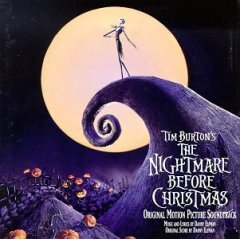 A few years back, when the Nightmare Before Christmas was re-released in cinemas in 3D, Disney released a new version of the soundtrack to coincide. This soundtrack included covers of all the film's songs by big name bands, to capitalise on the indie fanbase that had arisen for this film. The highlight of the LP has to be this cover by Fallout Boy, a truly joyful, toe-tappingly catchy song. Turn it up and rock out for Christmas.
A few years back, when the Nightmare Before Christmas was re-released in cinemas in 3D, Disney released a new version of the soundtrack to coincide. This soundtrack included covers of all the film's songs by big name bands, to capitalise on the indie fanbase that had arisen for this film. The highlight of the LP has to be this cover by Fallout Boy, a truly joyful, toe-tappingly catchy song. Turn it up and rock out for Christmas.
Rating on the Yule-O-Meter:
4. "White Winter Hymnal" by "Fleet Foxes" The star of Fleet Foxes' acclaimed debut album, White Winter Hymnal may not be the most festive song but its frosted lyrics, sleigh bells and warming harmonies conjures an image of marching through a snowy woodland. For those of you in London, this is the perfect song to listen to while watching the snow fall in the coming days.
The star of Fleet Foxes' acclaimed debut album, White Winter Hymnal may not be the most festive song but its frosted lyrics, sleigh bells and warming harmonies conjures an image of marching through a snowy woodland. For those of you in London, this is the perfect song to listen to while watching the snow fall in the coming days.
Rating on the Yule-O-Meter:
3. "Kindle a Flame in Her Heart" by "Los Campesinos"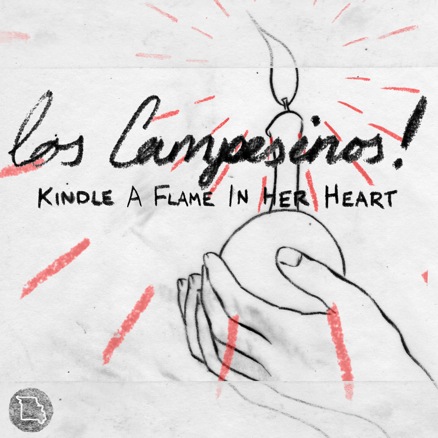 The newest entry on this list, this song comes courtesy of up and coming British band Los Campesinos. There's just about an entire year's worth of indie holiday pep wrapped up into this pretty package.
The newest entry on this list, this song comes courtesy of up and coming British band Los Campesinos. There's just about an entire year's worth of indie holiday pep wrapped up into this pretty package.
Rating on the Yule-O-Meter:
2. "A Great Big Sled" by "The Killers" Few things scream "Christmas joy" like this song. Overflowing with innocent lyrics and playful melodies, truly this is a song for modern Christmases. Toys, tinsel and iPods under the tree, if you're in the festive spirit, this is the song for you.
Few things scream "Christmas joy" like this song. Overflowing with innocent lyrics and playful melodies, truly this is a song for modern Christmases. Toys, tinsel and iPods under the tree, if you're in the festive spirit, this is the song for you.
Rating on the Yule-O-Meter:
1. "She Came Home for Christmas" by "Mew" A 2003 remaster of Mew's song, She Came Home for Christmas ends this list on an emotional high. Is it a song about a lost love? Something more sinister? Either way it's a lovely song, and adds something a bit different to the catalogue of mostly happy Christmas songs out there.
A 2003 remaster of Mew's song, She Came Home for Christmas ends this list on an emotional high. Is it a song about a lost love? Something more sinister? Either way it's a lovely song, and adds something a bit different to the catalogue of mostly happy Christmas songs out there.
Rating on the Yule-O-Meter:
Saturday, 11 December 2010
Wednesday, 24 November 2010
Directed by Danny Boyle
Written by Simon Beaufoy, Danny Boyle
Starring James Franco
Release date(s) Out Now
Running time 95 minutes
How do you follow up a universally acclaimed movie like Slumdog Millionaire? Danny Boyle's previous film came out of nowhere on a shoestring budget and ended up sweeping eight Oscars and grossing $400 million, earning the kind of plaudits reserved only for the very finest in cinema history. His latest, 127 Hours, comes amid a fury of hype and faces a seemingly impossible burden of expectation.
More seasoned cinema-goers will remember that Danny Boyle himself did not just come out of nowhere, but is backed up with a history of fine work from Trainspotting to 28 Days Later. Slumdog marked a new apex for him as the most emphatically joyful of his films, a level of enthusiasm that did not go unappreciated by audiences who ensured that it would become the most successful entry on his cv.
On first glance, the concept of 127 hours seemed like a radical departure from his milieu, based on the true story of a mountain-climbing adventure gone awry which culminates in self amputation in order to survive. It's not the most pleasant subject, the sort of dilemma that inspires nightmares in some along the same lines of spiders or being buried alive (both of which, funnily enough, have also been made into movies this year), yet it is compulsive watching and Danny Boyle pulls of something of a miracle here by turning a superficially unworkable project into something of an emotional tour de force.
This is a film which will test you and ultimately break you before the end credits roll. Yet somehow Boyle manages to keep it entertaining and at times even funny, taking such a horrific story and focus on the positive elements; the strength of human spirit, the triumph against overwhelming odds and adversity. Ultimately these trials pay off with what is arguably his finest ending to a film yet. Danny Boyle at his euphoric best.
This is pretty much what I expected of this film, but what I didn't expect was James Franco giving the performance of a lifetime as Aron Ralston. Franco is on screen for what seems like the entire movie, and usually he is by himself carrying the onscreen success on his shoulders. And carry it he does, convincingly portraying the highs and lows of Ralston's cocky thrill seeker. He could well see an Oscar nom this year.
We've all read the stories about people fainting during advance screenings of this film during some of the more intense scenes, and indeed I can't help but wonder how much of that is real and how much is clever marketing. I personally did not find myself wincing too much at the action, but then I saw far worse in med school. Still this is something you'll want to think about before you step into the screening room.
Ultimately Danny Boyle pulls off another treat, an emotional roller coaster with typically infallible production and a memorable performance.
Loves:
Typical Danny Boyle excellence
James Franco and the performance of his life
The ending
Hates:
Not for the faint of heart
Saturday, 20 November 2010
Wednesday, 17 November 2010
Developed by Obsidian Entertainment
Published by Bethesda Softworks
Genre Action RPG
Platform PC, Xbox 360, PS3
Obsidian, a company featuring many of the original Black Isle Studios employees who created Fallout, are back to give us the latest addition to the Fallout series. Fallout: New Vegas is built off of Bethesda's Fallout 3 engine and available on multiple platforms. Is it good? Read on to find out.
Bethesda's Fallout 3 was one of the best games of recent years. We reviewed it a while back, and frankly that original review doesn't do it justice as it was truly a game that grew on you over time. Now the original developers of the revered Fallout franchise have reclaimed what they created.
Fallout is set in "the atomic age of tomorrow" as imagined in cheesy American propaganda from the mid twentieth century, a world of robot butlers, flying cars and prosperity, all brought about by the wonders of nuclear power. The twist on this vision comes courtesy of the other side of the nuclear equation, atom bombs and war. This series takes place in a comically "American" wasteland following such a nuclear war.
One of the main criticisms you will hear of this game is that it is very similar to Fallout 3, being built on the same engine and using largely the same mechanics as that game. Frankly the fact that this is a criticism says it all. Fallout 3 was an amazing game, and using it as a starting point can't possibly be a bad thing, even if it is slightly dated by this point. But if I were to level any criticism at this game it would be something along those lines. After all Elder Scrolls IV: Oblivion and Fallout 3 both used the same engine, and the quality of the graphics haven't changed all that much since then. While some tweaks have been made, there is no escaping the fact that it still carries many of the same imperfections of games that are now 4 years old. For this reason, the game does have graphics that look slightly rough around the edges.
In addition, New Vegas shares much of the same basic gameplay mechanics as Fallout 3, with similar conversation and the famous VATs and SPECIAL systems, although the shooting mechanics have been much tweaked for this game to allow a much more competent 1st person shooting experience for those who desire such a thing. Still, the gameplay in general is not without its bugs and technical problems (in fact there are many of these according to general consensus, although I personally have been pretty lucky in this regard). The 3rd person camera view still looks half hearted, and navigating the mountainous terrain is a far more awkward affair than it should be in any modern game.
That being said, Fallout 3 still stands as an example of one of the finest action RPGs in years, and that is a quality which fully carries over into this newest iteration. New Vegas, much like it's predecessor, has an incredible open world full of quests, randomly triggered encounters and environments that really looked "lived in" more so than in any other game.
It would be easy for me to say that if you like Fallout 3 then you will like New Vegas, after all it contains the same morbid sense of humour and a similar style of "choose your own adventure" story telling. Indeed, New Vegas contains the same karma system which offers the choice of becoming a paragon of human decency or a complete self centred jerk, a system that allows you to feel like you're crafting your own character and your own story. But really Fallout: New Vegas manages to improve upon Fallout 3 in many ways.
Fallout 3's promised to involve a number of good old fashioned RPG style factions, but in the end player choice wasn't really a factor. Whatever you did in Fallout 3, you were always going to be an enemy of the Enclave, and the last hope of the Brotherhood of Steel. In New Vegas, however, the player has a real choice over which of the many factions to side with and assist for glory. There are many different endings determined by the various choices you make during the game, including several unique "endgame" quest lines depending on which faction you side with. This time, you really have a sense of control over how events play out, and make decisions that really effect the game world, unlike in Fallout 3 which was a much more linear experience.
New Vegas also includes an awesome all new game mode called "hardcore mode". With this option enabled one has to eat, drink and sleep in order to stay alive, which in the context of a post apocalyptic wasteland is really far more gripping and challenging than one might expect. In addition absolutely everything, including ammo, now has a weight, meaning that planning what to carry on you and when becomes an integral part of the game's strategy. The idea here is not necessarily to make the game harder, but to add realism and place greater emphasis on the scavenging aspect of the game by giving players a reason to explore the world more and route through every box or cupboard they find looking for precious supplies.
On top of all this, New Vegas lives up to the Fallout tradition of offering memorable characters and missions which range from the intriguing to the bizarrely wonderful, from the kitschy to the high octane. There really is something here for any kind of player with any preference of gaming style. It is equally possible for a player to perfect his speech and negotiation skills in order to manipulate, charm and lie his way through every task and lead his enemies to destroy each other, just as it is possible for a player to go in all guns blazing, and anything in between
But in some ways this game disappoints. Fallout 3 originally ended after the final quest, disabling people from pursuing any of the side quests afterwards, something which was so unpopular and universally derided that the developers eventually removed this restriction through DLC. So imagine my bemusement when the developers inexplicably decided to go and do the same thing again by making it so that the game can not be continued after the final mission, it is absolutely mind boggling. And in this instance the developers actually declare, proudly, that there is no way they will circumvent this through DLC since the story they've crafted wouldn't fit (having completed the game I can see that actually it wouldn't make any difference, but never mind). Stupid.
In addition I couldn't help but feel that the various environments, on the whole, seems to lack creativity compared to what we saw in Fallout 3. Where before you had massive cities built in scuttled aircraft carriers and others bizarrely cobbled together out of aircraft wreckage and built around unexploded atom bombs which the town's denizens worship as an idol, this time you have the New Vegas strip which, far from being the awesome centrepiece of this game as it should have been, turns out simply to be a linear series of streets literally laid out in a straight line. It's really quite uninspiring.
Ultimately New Vegas is a bit of a mixed bag, in that it improves greatly on gameplay aspects such as hardcore mode, shooting mechanics and factions. At the same time, it feels a bit lacklustre in terms of creative design of environments and still features a number of technical and design issues that have been problematic with Bethesda games in the past.
Crucially though, New Vegas still has that intangible "Fallout magic" and provides one of the best pieces of gaming you'll find this year.
Loves:
Hardcore mode
Manipulating factions for my own gain
Engrossing open world
Fallout magic
Hates:
That I can't keep playing after the last mission
Vegas Strip is really quite dull
Saturday, 6 November 2010
Hello all, it's your friendly neighborhood analyst here and that rarest of all things, a political moderate. And so draws to a close one of the most bizarre election cycles in recent memory. From wildly divergent pre-election polls to comic candidates and even a touch of witchcraft, this election had it all. It's seen a record influx of corporate money and a deluge of dirty campaigning, and for political junkies like myself it has all been fantastically entertaining.
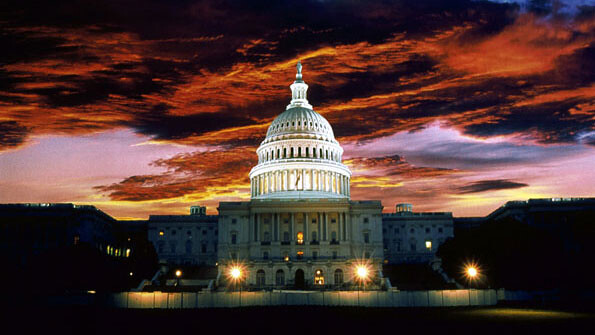
Despite this the election itself turned out being a surprisingly predictable affair, and indeed my own personal projections (particularly in the Senate and Governors races) were almost all called correctly. This article presents my analysis of this election cycle, starting with the expectations, going on to the results, and finally discussing the aftermath and the future.
Expectations:
So going into this election, the President's Democratic party enjoyed large majorities in both chambers of congress, as well as a majority of state houses and legislatures. However, a high unemployment and malaise amongst traditionally pessimistic liberal voters had resulted in low favorable ratings. But this is more than matched by the Republican party's own even lower favorable ratings, while the Democratic registration advantage has surprisingly actually increased since 2008.
So how did the two parties attempt to succeed in spite of their record low popularity? The Republicans hit upon the clever strategy of running under a different name, the "Tea Party". Mike Steele raised some eyebrows when he announced that the RNC would not be running a get out the vote initiative this year, or giving the Republican candidates the kind of funding that they are used to; but as it turned out this money was all being poured into the Tea Party instead in an attempt to avoid the toxic GOP name. It honestly makes you wonder why no political party has tried this trick before.
The Democrats meanwhile had a very different strategy: to ignore polls, historic midterm trends and instead put all their eggs into turning out the Obama base from 2008 that gave them such a landslide victory (ie. young voters and minorities), as opposed to voters who normally turn out for midterms (ie. everyone other than those demographics). It was a risky strategy that Obama himself insisted upon, drawing criticisms from many congressional Democrats who suspected that Obama was thinking more about maintaining the lines of communication with his likely electorate for 2012 than their prospects in 2010.
Now in terms of real electoral math, it's a fact that the President's party almost always suffers losses at the midterm elections; in fact the average opposition party gains for midterm election since the 1930s is fairly hefty at almost 30 seats in the house and 6 seats in the senate, and in more than half of the last 12 midterms the House has swung by 48+ seats. On top of this you have a Democratic party with an unprecedentedly large majority, and therefore many vulnerable seats in red states/districts and more seats in general to lose in a year in which both parties' popularity is at record lows. Add to this the worst economic conditions since the great depression and that makes for some pretty sobering electoral math for Democrats.
It is no wonder then that many top pollsters went into the election predicting record breaking House losses of 70-80+ seats and 8-9 in the Senate with a chance of taking both chambers of Congress. Our own predictions had the Republicans making gains of about 70 seats in the House, and 4 in the Senate. But as it turns out this is not what happened.
Results:
In the House, Republicans made massive gains of 60 seats. This was largely down to conservatives retaking the midwest, an area where Republicans normally perform well, but prior to the election had become unusually Democratic during the liberal sweeps over the past 6 years. It wasn't quite the historic 80 seat massacre that some had predicted, but it was pretty emphatic nonetheless.
Meanwhile in the Senate it was a slightly more disappointing night for Republicans as Democrats held on to the majority and outperformed polls considerably in a number of races. At the time of writing the Republicans have gained 5 seats in the Senate so far for a total of 46, actually below average, and certainly less than one would have expected from looking at all the electoral factors running against Democrats as described earlier.
In reliably liberal parts of the country Democrats actually performed better than usual at midterms, in particular in California and New York, where I'm sure I'm not the only one disappointed at the gubernatorial loss of Jimmy McMillan from the Rent is 2 Dam High party. Andrew Cuomo of course won that race against the batshit insane Paladino, whose concession speech involved threatening the victor with a baseball bat. Cuomo will go down in history now, whatever happens, as the only Democratic candidate ever endorsed by Rupert Murdoch's conservative rag the New York Post.
Certain races, like Illinois and Pennsylvania, were much closer than polls had predicted, with the Republicans clinging to narrow 2% margins in order to prevent a more comfortable Democratic majority. So while they ended up with an average night in the Senate, it is interesting to see just how close the Republicans came to having a pretty poor night indeed.
For all the attention on the Senate and House, arguably the most important races took place in the state houses, where the GOP won the gubernatorial battles in swing states like Ohio, Florida and Pennsylvania by razor thin margins. Again, these races were much closer than they were expected to be, but having won them the Republicans have something of a boost when it comes to redistricting next year, and when rallying local voters in 2012.
Analysis:
It's far too easy it seems for the media to get caught up in asking the wrong questions, describing this year's election as a Government takeover by the GOP, when in reality they now control about 1/6 of the Government. For the most part these results are entirely what one would expect based on historical precedent and the current dynamics of political discourse, perhaps in the case of the Senate and Governors' races even a little kinder than the Democrats had any right to expect. The House, however, was a sweep of titanic proportions. And so the questions that should be asked following this election are why did the Republicans over-perform in the House, and why didn't they do so well elsewhere?
Exit Polls
To get an idea of what went through the minds of the voters on election day we'll look at some of the exit polling:
- Unsurprisingly, the overwhelming message from voters is that they need jobs.
- Two thirds of all voters on Tuesday said that the Economy was the reason for their vote
- Almost 40% said the number 1 priority for the new Congress should be jobs
- A whopping 86% of voters are worried about the economy next year.
A cursory look at the demographics will also tell you that this was not a favorable turnout for Democrats, with only 11% of the voters aged under 30, and 1 in 4 aged over 65. In addition an incredible 78% of voters were white. These demographics are typical of a midterm election, and they're also groups that traditionally vote Republican.
Democratic Strategy
One has to wonder then about the Democratic strategy for this election, the focusing of so much effort on atypical midterm voters that has caused such consternation among congressional Democrats. It is worth noting that in the one race where the Democrat broke with the President and OFA's strategy, Senate majority leader Harry Reid the Democrat ended up winning handsomely, outperforming polls by as much as 10%. Reid's insistence on sending his famous ground operation after more typical midterm voters paid off, and very real questions can be asked of whether the President in effect sold out his own party in order to gee up his youth and minority base.
Money has also played a big part in this year's election following the contentious Citizen's United ruling which stated that corporations can now anonymously donate infinite sums of cash to curry the favor of whichever politician they like. It doesn't take a deep look to see how this undermines the level playing field of Democracy, but that's besides the point here. The story of this election has been the vast, record breaking sums of cash being injected into these races, mostly as it turns out for Republican candidates.
There has also been a lot of talk about the effect of propaganda such as Fox News and the dangers of an uninformed electorate. Without a doubt this has had an effect; for example polls continue to show that only a small number of people actually know what's in the health care reform bill, and that when you tell them what's in the bill the American public supports the reform by about 73%. Similar polls show that most Americans are unaware that Obama has actually lowered taxes (one of the largest tax cuts in history) rather than raised them, that Bush rather than Obama bailed out the banks, and that job creation has actually improved significantly since the stimulus passed.
However irresponsible the right wing news networks have been in propagating these falsehoods, I don't blame them for this. I don't blame the public either for being uniformed. Blame must go to the Democratic party, for the burden of informing the public rests on them and them alone. The White House, as well as the Democratic party at large, is full of dead wood and inept communicators, and it is largely their fault that they have lost control of the political discourse.
That being said, exit polls show that this misinformation did not seem to have a whole lot of effect on the outcome of this election, as I'll demonstrate in the next section of this article where we bust a few popular election 2010 myths which are simply not supported by the voters' own polling responses.
But first let’s attempt to answer the second question: why didn't the Republicans fare so well outside of the House elections? The depressing answer that mainstream Republicans are starting to accept is that the extreme Tea Party candidates most likely cost them the Senate. The Tea Party challenges turned what should have been easy Republican pick ups like Delaware, Nevada and Colorado into Democratic wins, and even deep red states like Alaska and Kentucky were uncharacteristically competitive. As it turned out, Marco Rubio was the only Tea Party candidate who ended up performing well, and he spent most of the general election distancing himself from the movement and benefiting from the two Democratic candidates splitting the majority of the vote between them.
They don't want to admit it in public, but while the Tea Party has proven very effective at rallying the base and winning in more specific local races where the party can send extreme candidates to extreme districts, they seem to have incredible difficulty gaining the support of independents and constituents in an entire state. This bodes very badly for 2012 if the Tea Party remains so prominent in the party, and it is no wonder then that the GOP is preparing a big "stop the Tea Party" campaign now that they're done using them to regain the House. A Civil War in the GOP has been inevitable since 2008, and it's going to be interesting to follow the outcome.
Midterm Mythbusting:
As usual, there is an inordinate amount of crap coming from the talk-holes of both political parties, some of which is so completely disconnected from the reality of what the voters themselves actually said on Tuesday that I think it's only right that I devote a section of this analysis to mythbusting.
Republicans: This election was a vote against Barack Obama
Based on what? The fact that they voted against congressional Democrats? According to exit polls, that is in the words of the voters themselves, only 37% of voters said that their vote was specifically in opposition to the President. An equivalent number said that their vote was intended as a sign of support for Obama, and most people simply said that Obama had absolutely no effect on their vote. In addition, most voters did not blame Obama for the state of the economy, he came third behind Wall Street and Bush. Wishful thinking by Republicans with an eye on 2012 already.
Democrats: voters don't see more tax cuts as essential
Half true, but misleading. Only 18% of Tuesday's voters said they want tax cuts to be a priority, but that does not mean they don't want them. One of the other choices on this exit poll was "jobs" so really, did you expect many people to say something other than jobs is a priority?
Republicans: This election was a vote against Health Care Reform
This is another piece of empty campaigning from the Republicans. Only 18% of voters on Tuesday said that the recently passed healthcare reform bill was a factor in their vote, and amazingly, of that 18% more than half voted Democratic. In addition, nothing like a majority favor repeal of the bill, and a convincing majority either want to leave the bill the way it is or expand it further. These numbers echo what most polls on the subject show, that approval and disapproval numbers are about even, and support for full repeal is very low. These numbers certainly are nowhere near enough for Republicans to run on this issue in 2012 unless they are completely deluded, but undoubtedly they recognise the rallying effect it has on a small proportion of their base and will keep pushing it for show (at least until it starts hurting them, according to these exit polls it may have already!). It is also worth noticing that all the Democrats who opposed healthcare reform lost this election, whereas the progressive caucus which survived almost entirely unscathed all supported it.
Democrats: all this election shows us is that voters are unhappy about jobs
Yeah you wish, as already discussed there was a whole lot wrong with the Democrats' approach to this election. The liberal base in particular didn't even bother turning up, so frustrated are they with your incessant concessions to the opposition party.
Republicans: Obama's 2008 voters are switching Republican
A big whopper alright. Of the people who voted on Tuesday having voted for Obama in 2008, only 13% voted Republican. Considering not many of Obama's voters showed up this year, that's a bit of a stretch to say the least. Indeed, 1 in 10 of McCain's 2008 voters switched to the Democrats in this election, essentially the same conversion rate of what was probably a much larger group in this electorate, so absolutely no evidence for this claim.
But we finish with perhaps the biggest load of crap of all:
Republicans: This election was a big victory for the Tea Party.
This seems to be the de facto narrative for this election, at how the Tea Party has taken control of the country and revitalised the Republican party. Well as it turns out, only 32% of Tea Party candidates for Congress actually won, in a year where Republicans won almost every race. In addition, most people seem to agree that the Tea Party cost the GOP the Senate, with most of their candidates losing races that they really should have won. If all that is not enough, exit polls show that only 22% of Tuesday's voters voted in support of the Tea Party, while a similar 17% voted in opposition to the Tea Party. But overwhelmingly a majority of Tuesday's voters said that they simply did not care about the Tea Party one way or the other! It can perhaps be argued that the Tea Party succeeded in bringing down Democrats, but it seems to have done little to actually boost the GOP itself.
And of course, both parties are claiming that exit polls show that the other party is less popular than theirs. Both parties are ridiculously unpopular, but in this case Democrats have the edge, with 2% better favorable ratings... congratulations you horse's asses. As you can see there is more hot air in this spin cycle than Rush Limbaugh's sweat pants.
The future:
So what do the Democrats do to recover from this loss? The first thing that has to happen is a shake up of the DNC and the White House. There has been an abject failure of communication and strategy for the past few years, and the first person who must surely step down from his position is Tim Kaine, the chairman of the DNC. Tim Kaine has shown himself to be an inept and uninspiring character who has as much in the way of tactical nous as he has hair, and even Democrats are left cringing every time he goes on tv and whips out some lame slogan or a special campaign key chain. In just about every way, the party has gone backwards since Kaine took over from Howard Dean. Tim Kaine has to go, either of his own accord or forcibly, and that has to be the first thing to happen.
Second, the White House needs a shake up. The economic team is already undergoing a reshuffling, as well as a new chief of staff coming in to replace the outgoing Rahm Emanuel who has left in order to run for mayor of Chicago. The one person who is still inexplicably hanging around is Robert Gibbs, the hapless and gaffe-prone press secretary who from day one looked completely the wrong choice for the position. From his insulting of the Democratic base to his complete inability to adequately answer even the simplest of press briefing questions, to his sheer lack of charisma and likability, the fact that Gibbs still has his job is simply astounding. No wonder the White House has such trouble communicating with the press.
As for President Obama himself, it's not yet clear just how worried he should be. It's interesting to note that he is still the overwhelming favorite to win the 2012 election among the bookmakers and strangely his odds of winning reelection actually improved following the results of the 2010 election, according to them. Is there any basis for this view?
Well actually when you look back at previous administrations, more often than not the Presidents who suffer big midterm losses go on to win reelection. In fact they seem to do a lot better than Presidents who fare well at the midterms, and this is a strongly statistically significant correlation. Recent Presidents who have suffered big midterm losses include Truman, Eisenhower, Reagan, Clinton, where as the few Presidents who didn't suffer such losses include Carter, Ford and Bush Sr. Do you see the difference between those two lists? The former all won reelection by a landslide, the latter were one term Presidents. The only big exception to this connection is Bush Jr, who managed to ride his presidency saving post 9/11 boost to victory in both the midterms and his reelection campaign.
So why would Presidents who lose big at the midterms do better when it comes to reelection? It's impossible to say, perhaps the loss galvanizes them and gives them a valuable wake up call prior to the campaign. Perhaps it allows the President to split the blame for poor conditions with the opposition party. Or perhaps it's the case that midterm winning parties go on something of a power trip after they win and end up overplaying their hand. The obvious example of this is the Clinton administration, where Republicans won big in 94, spent the next two years focusing entirely on bringing down the President, and then lost big in 96. Sounds familiar doesn't it?
That brings us on to the future for Republicans. They now face a difficult balancing act, because they want to have the power to make life difficult for Obama, but they have to resist going too far and scaring away independents. They also want to avoid being lumped with the responsibility of power, and in this regard the media coverage of their victory this week will probably go against their interests.
The narrative right now seems to be that Republicans have taken control of the government, when in fact they only control a small part of it. This means that voters will be holding them accountable for what happens now, even if they don't really have much say in it. Indeed it's very interesting that since the big victory, Republicans have spent a lot of time trying to play down their role in the current Government; perhaps they regret now some of their own hyperbole.
The other big concern for Republicans is the tea party. As it turned out the Tea Party candidates didn't fare so well on election night, despite the relative ease with which they knocked out more moderate GOP candidates in the primaries. This is a big worry for 2012 where the Tea Party could conceivably force through one of their own candidates, say a Sarah Palin or Christine O'Donnell type, and likely blow any chance the GOP has of winning that election. It is no wonder then that Republican leaders are planning a "stop the tea party" campaign as mentioned earlier.
In addition you have Tea Party Republicans challenging for prominent roles in this new GOP controlled House, including the positively ludicrous Michele Bachmann and Joe Barton who apologised to BP for the oil spill (somehow). The unintended side effect of this big Republican win seems to be that the most frightening and off putting of conservatives are going to be thrusting themselves into the limelight, fresh with the confidence that it is their brand of craziness that has won the day. No doubt there are plenty of Republicans worrying about the effect on the electorate of having people like Bachmann and Joe Barton become the face of their party in the run up to the election. The civil war within the GOP is starting to reach fever pitch and they'll need to have it sorted out before they pick a 2012 candidate to represent the entire party, or they simply won't win.
If the Republicans are smart, they'll spend the next two years toning down the extremist rhetoric and focus on jobs as the voters told them to. Their early press conferences where they imply a primary focus on healthcare repeal suggests that they could well pull a 96 and blow this massive chance that they've fought for.
Tuesday, 26 October 2010
Developed by Firaxis Games
Published by 2K Games
Genre Turn-based Strategy, 4X
Platform PC
As the newest entry to the famous Civilization series, Civilization V surprises many with drastic changes to core gameplay mechanics. But has it paid off?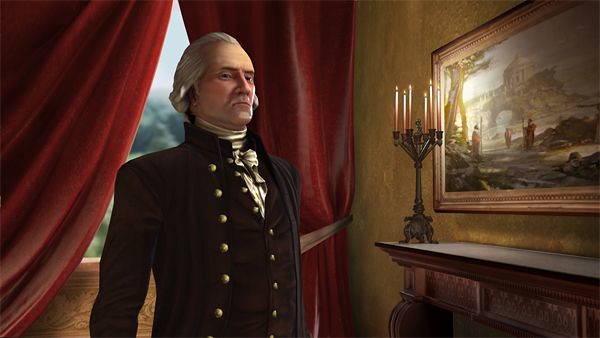
Civilization, of course, is the series that defined the genre of turn-based 4X (explore, expand, exploit, exterminate) gameplay, way back in 1991. The basic idea remains the same today, you control a civilization and guide them through the trials of history from cave men to the space age, seizing world dominance by whatever means you deem necessary. To do this, one trains units, builds city improvements, and researches technology.
For the first time in a long while, this entry to the series makes big changes. Civilization has now switched to a hexagon-based map as opposed to square tiles as before. This is actually a much bigger change than it sounds, as it completely changes how units move and explore the map, as well as engage in combat.
The other major change is that only one unit at a time can be in a single map tile, which means that the old tactic of piling units on top of each other in order to overwhelm the enemy no longer works. This forces the player to be much more tactical when thinking about unit placement and movement, as well as when choosing a unit with which to protect a city.
Other less fundamental improvements include the addition of 'city states', which are essentially single-city civilizations with special attributes that the player can either befriend in order to receive resources and military support, or oppose and risk a confrontation with their allies. These add an interesting new strategic element to the game, but one that frankly seems designed to compensate for weak diplomatic elements elsewhere in the game.
In addition, Civilization V has improved support for modification, supposedly even able to plug certain user mods into an existing save-game, hypothetically extending the lifespan of a game indefinitely should you desire. Unfortunately as of yet this feature has not really been used, so I am unable to include it in my review.
These big changes are welcome ones and a definite improvement to the old Civilization formula, but unfortunately beyond that there is not much in the way of progress from Civilization IV, and in fact in many ways this game seems to be a step backwards.
Not many people remember that there was in fact a Civilization game between Civilization IV and this one, it was called Civilization Revolutions and it was released on consoles. The idea behind this game was to 'streamline' Civilization, which Firaxis took to mean 'dumb down' by removing most of the strategic and micromanagement elements. The game was a critical and commercial flop and I think I can safely say that most fans of the series had hoped that Firaxis had gotten this urge out of their system so that they could return to what they do best: rich, deep civilization titles. Sadly they have not.
Religion and corporations have been taken out of the game completely, an element that, while slightly superficial, is undeniably an extra dimension to the politics of the game.
The ability to alter tax rates and funding for scientific and cultural development is also completely gone, the importance of which can not be overstated. This was previously the pivotal choice for players in deciding how to develop your civilization, and removing it takes out most of the non-combat strategy which existed in the series, as well as destroying any semblance of an economy which may have been present before.
Each civilization only has one leader to choose from, where the previous game had several each with different attributes, and the game hasn't shipped with any of the scenarios that have been so popular in the past. Several important elements of diplomacy are gone as well, including the ability to trade technology.
The result is that while the combat has certainly been improved, there's very little else to do in this game. Beyond choosing which improvement to build there is very little strategy involved in running a civilzation as with previous games, diplomacy is still very shallow and largely irrelevant with poor AI for other nations' leaders. It's nowhere near as addicting or rewarding as before. Unfortunately Civilization V is a game with little of the magic that has so epitomised past games by Firaxis. Why Alpha Centauri, a game that's more than ten years old, still contains deeper and more advanced features than this game is simply hard to understand.
Ultimately Civilization V is a game that has been severely dumbed down into what I suppose Firaxis would describe as a 'streamlined' experience, but the rest of us will likely describe as disappointing.
Loves:
Updated graphics
Combat has greater strategic depth
Hates:
Shallow
Many features removed
Little in the way of real improvement
Very little to do in this game beyond combat
Saturday, 9 October 2010
Directed by David Fincher
Written by Aaron Sorkin, Ben Mezrich (novel)
Starring Jesse Eisenberg, Andrew Garfield, Justin Timberlake
Release date(s) Out Now
Running time 121 minutes
On the surface this film has everything; massive hype, a great writer/director team, and a subject matter that is both timely and pivotal to the chronicle of the current generation. The Social Network promises many things, but does it achieve the vaunted "classic" status to which it aspires?
The Social Network tells the story of Mark Zuckerberg, socially inept Harvard boy genius who comes up with Facebook, an idea that changes the world and makes him a very wealthy man. But the script focuses less on the achievement and glamour (though there is a fair bit of that at least in the early stages) and more on the infighting and drama behind the scenes which led to a number of court cases and big money settlements.
I was skeptical when the media first announced the existence of a Facebook movie in the pipeline, even though it was an inevitability as arguably the most revolutionary development of the internet age since Google. However when I heard the names being attached to the project, David Fincher as director and Aaron Sorkin scripting, I knew the end result would be worth watching.
Indeed from the opening scene their influence can be seen, as characters launch into lighting fast and impossibly witty exchanges, the likes of which could only be written by Aaron Sorkin, or possibly David Mamet. Fincher meanwhile produces the gutsiest work of his career to date, perfectly maneuvering around the calisthenics of the fine script. This is a film that is at times hilarious, sexy, fun, but throughout it all an aching sadness underpins the whole endeavour.
The central conceit of this film, it turns out, is the irony that someone who struggles so intensely with social issues could have created the greatest revolution in social living in a generation. The Social Network attempts to reconcile this seeming incongruity by shining a spotlight on the underhanded, scheming, and generally unpleasant behind the scenes goings on which took place.
Needless to say Zuckerberg himself doesn't come off in a positive light, driven by his own insecurities and a desire to fit in. Fincher's goal for this film seems to be to make viewers feel sorry for a multibillionaire genius, rather than envious, and he does this pretty well.
This leads on to my biggest problem with this film, the tight focus on the darker, sadder aspects of these events. Now don't get me wrong, this is a great angle for the story and it's pretty much what Fincher does best. My problem is that this really only works when contrasted with the superficial glamour and spectacle of everything that Zuckerberg achieved, all the fun stuff. While this is addressed in the film, I didn't feel it was done particularly successfully. This film seems to take all the success in an almost blasé fashion, and the sheer scale and revolution of what is unfolding on screen never really hits the audience in a satisfying way.
Ultimately I attribute this to one of two things: too much focus on the sadder aspects of the plot as I mentioned, and a simple lack of understanding among the creators of this film. Sorkin and Fincher are great film makers, but how well do they really feel the significance of Facebook? Both have admitted that they really didn't know anything about it before making this film, and the unfortunate result is that you could replace the names and the word "Facebook" in this film with some other endeavour and not a thing would be lost from the story telling. This often doesn't really feel like a Facebook movie, it feels like a standard "brainy whizkids set out on a journey, but fall out along the way" film with the word Facebook thrown in a few times.
But ultimately that doesn't really matter too much, because the film itself is masterfully done. I've already mentioned the excellence of the writing and direction, but praise must also go to the actors. Until now, Jesse Eisenberg was an actor known to me only as "that kid who looks a bit like Michael Cera and plays similar roles", well no more. Eisenberg plays the role perfectly and shows himself to have far greater acting chops than Cera will ever have. Andrew Garfield is fine as really the only likable character in the film, and does himself no harm as he prepares for the super stardom that will come with his upcoming role as Spiderman.
But the real shock of the film is Justin Timberlake who, shockingly, is not half bad. For two hours I actually forgot who I was watching on screen as he drew me into the world of Sean Parker, the (kinda but not really) creator of Napster. In retrospect it shouldn't really come as a surprise as he's hardly a real musician, 75% of what he did as a pop star was acting.
Really this is just as finely created a film as you will ever see in pretty much every aspect. It's well written, directed and acted and relates to so pivotal a topic for our generation as to make this film noteworthy, not just this year but for years to come. At times it can feel a little formulaic without really appreciating the subject matter, but the overall quality of what is on screen overrides any complaint I could have. This is one of those films that you won't want to end.
Loves:
Fantastically honed production
Revelatory performances
General quality
Hates:
Superficial attachment to the subject matter





